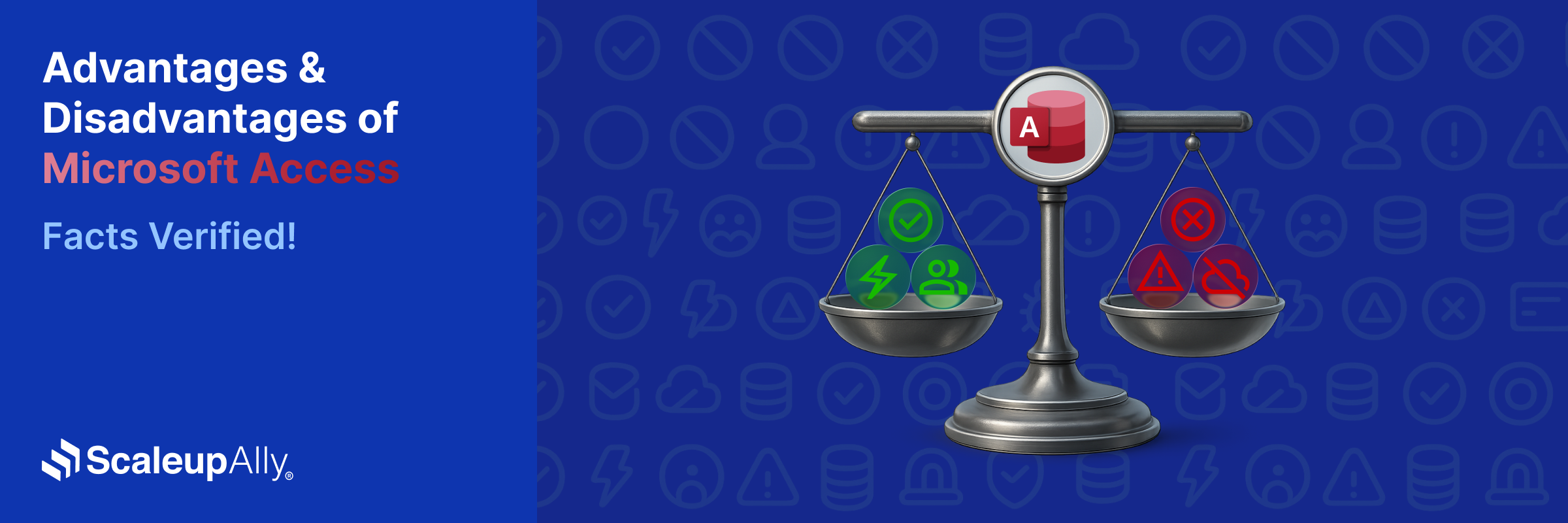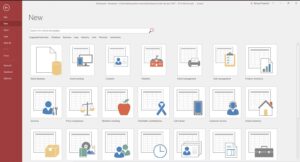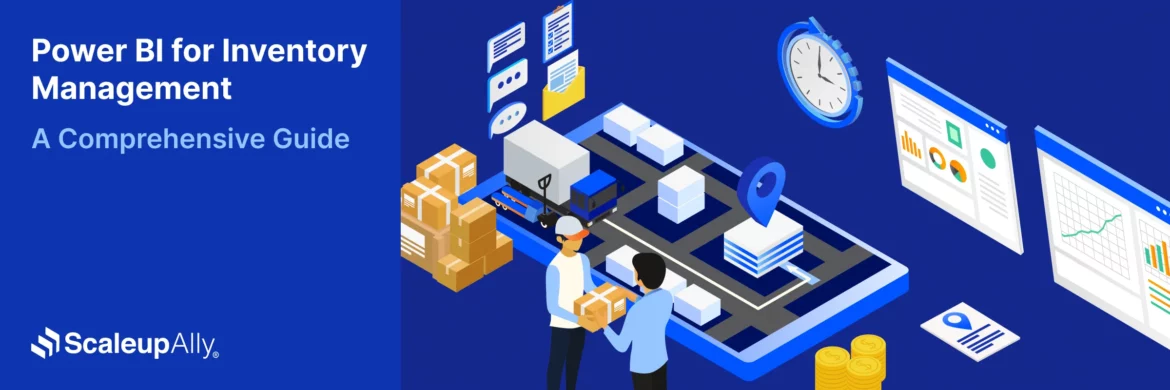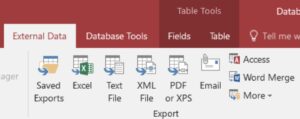
Advantages & Disadvantages of MS Access
Tarsem Singh | July 1, 2024 , 9 min read
Table Of Content
Looking to incorporate MS Access in your organisation?
Well no doubt it is a popular choice for small and medium sized businesses as it is easy to use and comes at an affordable price.
However you should make a careful examination of the advantages and disadvantages of MS Access before making a decision.
Although this software has 8.84% market share and is used by over 53,000 customers, there are some limitations of MS Access which you need to consider before choosing it for your database needs.
In this blog post, we will discuss the advantages and disadvantages of MS Access in detail.
Quick Overview: MS Access Advantages & Limitations
MS Access Limitations
MS Access struggles with huge amounts of (2GB limit) and often slows down with if 10 plus users are added. In addition to this while MS Access is affordable, it’s not free and works only on Windows with specific Office 365 plans.
MS Access Advantages
MS Access is user-friendly for building databases without needing programming. It integrates well with Microsoft Office programs and is affordable for smaller businesses. It offers data import/export tools and lets you share data with up to 40 users.
Advantages of MS Access
1. Widely Popular
MS Access is the 7th most popular desktop Relational Database Management System (RDBMS) in the world. This popularity comes on the back of Microsoft. Majority of organizations don’t make a second thought while going ahead with tools and software provided by Microsoft.
2. Easy to Install and Use
Another benefit of MS Access is that it is easy to install and use.
It takes only a few minutes to install Access and has a fully functional database with Wizards to guide you at every step. You do not need to know any programming language to use MS Access. This makes the learning curve to master MS Access easier than other database management systems.
3. Easy to Integrate
You can easily integrate MS Access with software programs based on Windows as well as with other products in the MS Office suite.
This makes it a good choice for users who need to create and manage database applications that need to interact with other systems.
4. Large Amounts of Data
Microsoft Access provides a variety of tools and features that allow users to query and analyze large amounts of data without the need to know SQL.
Some of these tools and features are:
- Query Builder
- Expressions
- Grouping and sorting
- Crosstab queries
In addition to these tools and features, Access also provides a number of wizards and templates that can be used to create common queries and reports. This can further simplify the process of querying and analyzing data for users who are not familiar with SQL.
The total size for an MS Access database including all database objects and data is 2 GB.
5. Compatibility with SQL
You’ll find MS Access, relatively compatible with SQL. You can use queries graphically. Also, you can use SQL statements directly in Macros and Visual Basic for Applications (VBA) Modules. It is possible to mix and use both VBA and Macros for programming forms and logic and offer object-oriented possibilities. You can also include VBA in the queries.
6. Cost-Effective
Another benefit of MS Access is that it is significantly cheaper to implement and maintain compared to larger database management systems such as Oracle and SQL server.
7. Easy to Share Data
MS Access has a multi-user feature that allows you to share your database with up to 40 people at the same time. So, all the users you share your database can edit and make changes. The newer versions also allow you to create a Web Application that allows users to edit and change certain aspects of the same database using a web browser.
8. Automate Actions
You can also use MS Access to automate frequently performed actions with Macros and point-and-click options. MS Access reports then lets you summarise data in printed or electronic form.
9. Ready-to-use Templates and Wizards
MS Access has ready-to-use template databases within the program and for download from Microsoft’s website. These options are available upon starting MS Access and allow users to enhance a database with predefined tables, queries, forms, reports and macros.

10. Import & Export
One of the most significant advantages of MS Access is that it has a set of tools under the ‘External Data’ menu heading that can be used for importing existing data from various sources. You can import data from Word, Excel, and web browsers. This is useful when you have data from many sources.
The ‘External Data’ tab allows you to export data from MS Access to a variety of formats.
11. Upgrade Capabilities
If you are a growing company then MS Access has features to upgrade capabilities. If your database size is growing, you can upgrade to SQL Server along with an MS Access Data Project.
12. Analysis of Databases
It is easier to analyse databases with MS Access, as compared to other database management systems. You will find many assistance functions in MS Access that will help to analyse, request already created databases and create reports.
13. User-Interface
MS Access has an advanced and attractive graphical interface, which makes it ideal for creating, managing, analyzing databases and producing reports.
So these are some of the many advantages of choosing MS Access.
Let us now take a look at some of the limitations of MS Access.
Disadvantages of MS Access
1. Triggers and Advanced functions
MS Access does not have triggers and advanced functions for scheduled jobs like backups. You can implement them but you need to do complex coding and opt for external programs/libraries.
2. Finite Database System
If you have a large database, you may find a file size limit. MS Access is not suitable for large database system when you compare it to database systems that follow the client-server model. You can opt in for smaller and/or specific database requests.
3. Speed
Technically, the limit for concurrent users is 255. Though multiple users can log into MS Access simultaneously, it becomes slow if there are over 10 concurrent users in a split database.
4. Data Stored in a Single File
All your data is stored in one single file. As users scale the data size, performance becomes slow; thus, slowing down reports, queries and forms. When uploads cross 1 GB, the program slows down considerably.
5. Upgrades
Version incompatibility challenges are encountered when migrating the current data to updated software. This is the biggest drawback of using MS Access.
6. Support
Generally database development and upkeep in MS Access is initiated by a full-time member. This person also has full-time responsibility to support the database. But when the person is not available, there is no-one to be responsible for the database.
7. Fee-based and only available for Windows
As compared to other RDBMS, you’ll find MS Access cost-effective. But it is not free. It is available only with the Business and Business Premium versions of Office 365. Also, MS Access is available for Windows users only.
Also Read: Is MS Access Still Relevant?
Conclusion
Overall, MS Access is a good choice for small businesses and individuals who need to create and manage small to medium-sized databases. It is also a good choice for users who need to integrate their databases with other Microsoft Office applications.
However, there are some limitations to it, such as its limited scalability, speed, and incompatibility with upgrades.
If you need to create and manage a large database with millions of records, or if you need support for complex data types or a highly secure database solution, then you should consider using a different RDBMS, such as SQL Server or Oracle.
We hope the Advantages & Disadvantages of MS Access listed above helps you choose the right version of MS Access.
Frequently Asked Questions
Q: When should I use MS Access?
You should use MS Access if you want to maintain data integrity and store data that can be accessed by multiple users.
Q: What are the benefits of MS Access?
The benefits of using MS Access include its: ease of installation and use, seamless integration with Windows and MS Office, cost-effectiveness, multi-user support, automation features, ready-to-use templates, import/export capabilities, and an advanced graphical interface.
Q: What are some alternatives to MS Access?
Some alternatives to MS Access include:
1. Microsoft SQL Server
2. Oracle Database
3. MySQL
4. PostgreSQL
Related Blogs

Data Warehouse Cost Breakdown: Factors, Pricing Models & Platform Comparison
Discover how much a data warehouse costs in 2025. Explore pricing models, key factors, and platform comparisons to plan your data budget effectively.
Tarsem Singh
Nov 6 ,
14 min read

How Much Do Integrations Cost? [Pricing Breakdown & Key Insights]
Learn how much integrations cost, key factors influencing pricing, hidden expenses to avoid, and effective ways to reduce integration costs.
Tarsem Singh
Nov 6 ,
9 min read

Power BI for Inventory Management: A Comprehensive Guide
Explore the hidden power of Power BI for inventory management and how it provides businesses with powerful analytics and visualization capabilities.
Tarsem Singh
Oct 8 ,
19 min read




